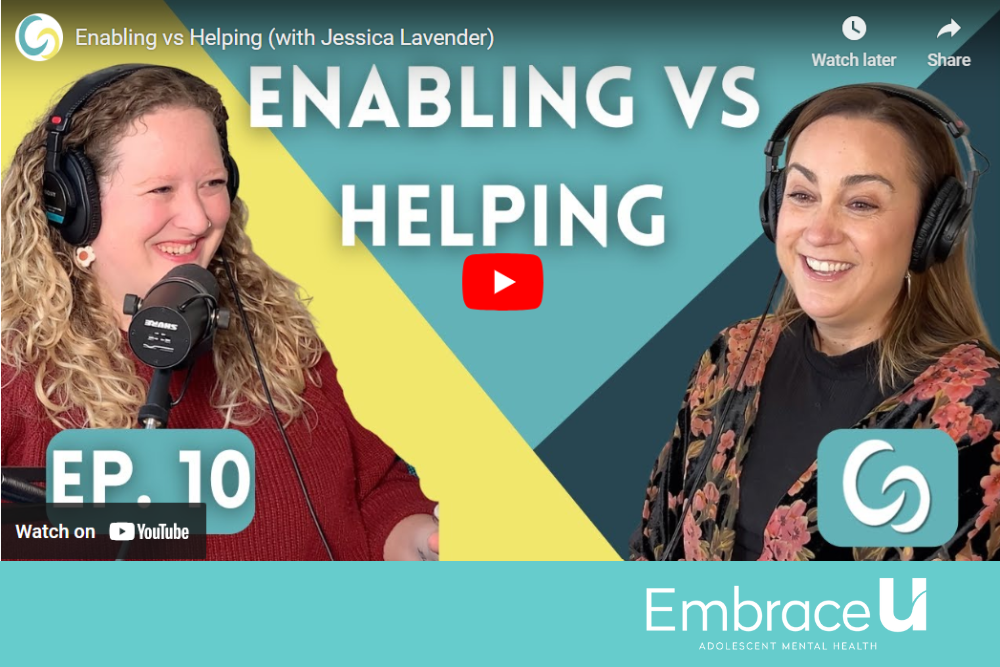Some of the most shocking mental health statistics revolve around teen mental health. For example, one in seven 10- to 19-year-olds experience a mental disorder, according to the World Health Organization. Mental health disorders impact the lives of millions of teens throughout the world, yet stigma, limited support and resources often prevent many parents from getting their children the help they need.
Embrace U is an adolescent mental health care facility helping children and teens experiencing the symptoms of mental illness. Our outpatient programs are geared toward families who have already tried individual therapy and need a higher level of care. Many participants come to us after having completed treatment at a residential program. Our intensive outpatient and partial hospitalization programs combine group therapy with individual counseling, medication management, and family therapy. Contact us today to discover how we can help you take back your life for the better.
4 Common Teen Mental Disorders
Millions of teens struggle with mental health conditions; however, some mental disorders are more common than others. The four most common teen mental health disorders are anxiety disorders, depression, ADHD, and eating disorders, according to the U.S. Department of Health and Human Services.
Anxiety Disorders
Anxiety disorders are the most common group of mental health disorders among teens and adolescents. This includes anxiety disorders like generalized anxiety (GAD), PTSD, social anxiety disorders, and phobias. While stress is a normal part of life, untreated chronic anxiety can significantly impact an individual’s health and quality of life. Feelings of extreme worry or fear often accompany anxiety disorders and can lead a young person to either avoid certain events, people, or places entirely or look for alternative unhealthy coping strategies to manage their symptoms, like abusing drugs or alcohol.
Depression
Depression is the next most common teen mental disorder that, left untreated, can completely rob your child of leading a healthy, happy life. We all experience bad days every now and then; however, depression involves feeling sad for weeks or even months on end. Individuals struggling with depression typically lose interest in hobbies they once enjoyed. A child with depression may isolate and grow distant from loved ones. Without treatment, depression can potentially worsen and lead to an increased risk of self-harm and suicide.
Attention-Deficit Hyperactivity Disorder (ADHD)
Attention-deficit hyperactivity disorder (ADHD) negatively impacts an individual’s ability to focus and concentrate for normal periods of time without interruption. Symptoms of ADHD can include fidgeting, interrupting someone, and excessive moving. ADHD often interferes with a young person’s ability to learn and can hinder their academic and work performance. This disorder can get in the way of a child’s productivity and ability to complete tasks on time without frequent interruption.
Mood Disorders
A mood disorder can be described as a pervasive or sustained feeling or tone that impacts nearly all aspects of a person’s behavior, according to the National Library of Medicine. Symptoms of mood disorders include drastic emotions such as severe bouts of sadness or manic highs. Bipolar disorder, seasonal affective disorder and cyclothymic disorder are all types of mood disorder that can greatly impact a young person’s ability to function normally. Parents should consider seeking professional help if their child’s emotions are interfering with their school work, relationships, or other activities. Children experiencing a mood disorder may have suicidal thoughts. A mood disorder is unlikely to go away on its own and is easier to treat early on.
Suicidal Ideation
Suicidal ideation can be a symptom of a mental disorder. Adolescence can be a turbulent period marked by emotional ups and downs, but when young individuals experience persistent thoughts of self-harm or suicide, it is crucial to take these signs seriously. Factors such as academic pressure, social isolation, bullying, and mental health disorders can contribute to these thoughts. Identifying and addressing suicidal ideation in adolescents requires a compassionate and understanding approach. Open communication, access to mental health resources, and a supportive network of friends and family are essential in helping adolescents cope with these distressing thoughts and find a path toward healing and hope.
Start Your Road to Mental Well-Being at Embrace U
Mental health disorders among teens are more common than you may think. Left untreated, mental health disorders can significantly hurt an adolescent’s mental health and well-being. Whether you are struggling with one of the above common teen mental disorders or another mental illness, it’s crucial you seek out professional help and support to safely and effectively manage your mental health symptoms. You should never feel afraid or ashamed to ask for help!
Embrace U’s clinical outcomes prove our outpatient treatment programs are highly effective, and in many cases help adolescents recover from a mental disorder much faster than individual therapy alone. Whether you are struggling with depression, anxiety, PTSD, or another mental condition, we are here to help you every step of the way to better manage your symptoms and regain control over your life for the better. Ready to start your recovery journey? Contact us today!










